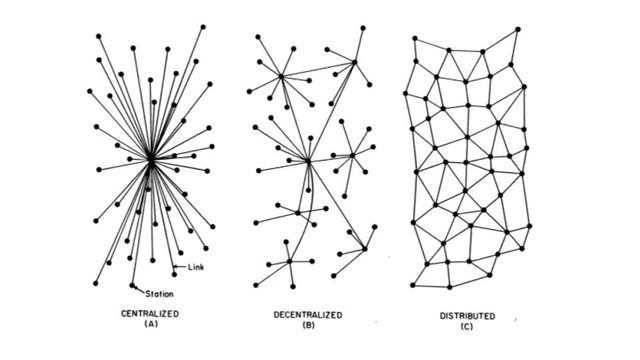Implementation of the Decentralized Web
The Internet has, over the decades, become a walled garden, if not a fortress swamp. I don't wish to add to the negatively that has infected the social media sites and Internet conglomerates like Google. I only wish to point out that the current state of affairs is the result largely of centralization of Internet content.
Many people unironnically believe Google itself is the Internet. They don't grasp that Google is a search engine that has outcompeted every other search engine, like Yahoo, Ask.com, etc. over the years. They own the web. By owning the web, I mean that they own websites, from your grandma's blog, to Infowars, to your own twitter account. Their blessing, or lack of it, can make or break your website.
If your site doesn't align with their idea of content that "delights the user," you could lose site ranking in search results, and perhaps leave your blog a ghost town with only Russian bot spammers as visitors. Lest it's not clear, the guidelines that "delight the user" are created solely by Google.
Decentralized Web is Now in Its Infancy
I believe that the best fix is a complete destruction of how we view the web. Bitcoin has started a new line of thinking where Internet users once again look back at the decentralized roots of the web. And they want it back.
The technology is still new. There's some ideas of a technology stack of how it should work. I believe that it will run alongside the centralized web once it becomes usable.
It will harken to old but faithful P2P technology. It will connect to regular old PCs as nodes. It will have a DNS system that tells where to find the hostnames on nodes all across the web. Your PC could host a few websites depending on your computer's specs, and you could perhaps receive payment for doing this like a hosting provider, but in cryptocurrency.
Think of it like a bitcoin node, but you don't need to download the entire web to be workable. You only have to host a few sites if you can and if you want the payment incentive. The sites will have redundancy on other nodes in case your computer is turned off. The DNS system won't need to rely on IP addresses as much.
The concepts are already in place on the centralized web. Technology such as DNS over TLS improves security. The LAMP webstack could run on your PC or MAC with very few hiccups. I'm a big believer in the LAMP stack. I don't care for the arguments against it as old. Old is good in that bugs have been ironed out and many eyes and brains have worked on making it the most reliable stack around. I also believe that it is the most beginner-friendly stack for new web developers. This would only help new users ramp onto the decentralized web who have never coded in their life but want to be heard.
Nodes could also act as Round-robin load balancers for sites that get swamped with traffic. The traffic could get passed along different copies of nodes across computers so that the sites doesn't hang.
Sure, it probably won't have the nice features we are all used to. But it's a start. It will harken back to the old days, where it would be exciting to come across a forum or blog that you didn't know you needed. Minority voices, controversial voices, subversive voices could all still be discovered and un-censorable.
I'd be willing to give up some conveniences, like if the sites weren't as media intensive and graphical as I like. Words and voices matter. Most of us don't want a handful of companies to do the thinking for us with content that has been cleansed for whatever political or moral reason is in style for the week.
The full decentralized web Summit 2018, by the Internet Archive:

Congratulations @bagzinga! You received a personal award!
Click here to view your Board
Do not miss the last post from @steemitboard:
Congratulations @bagzinga! You received a personal award!
You can view your badges on your Steem Board and compare to others on the Steem Ranking
Vote for @Steemitboard as a witness to get one more award and increased upvotes!